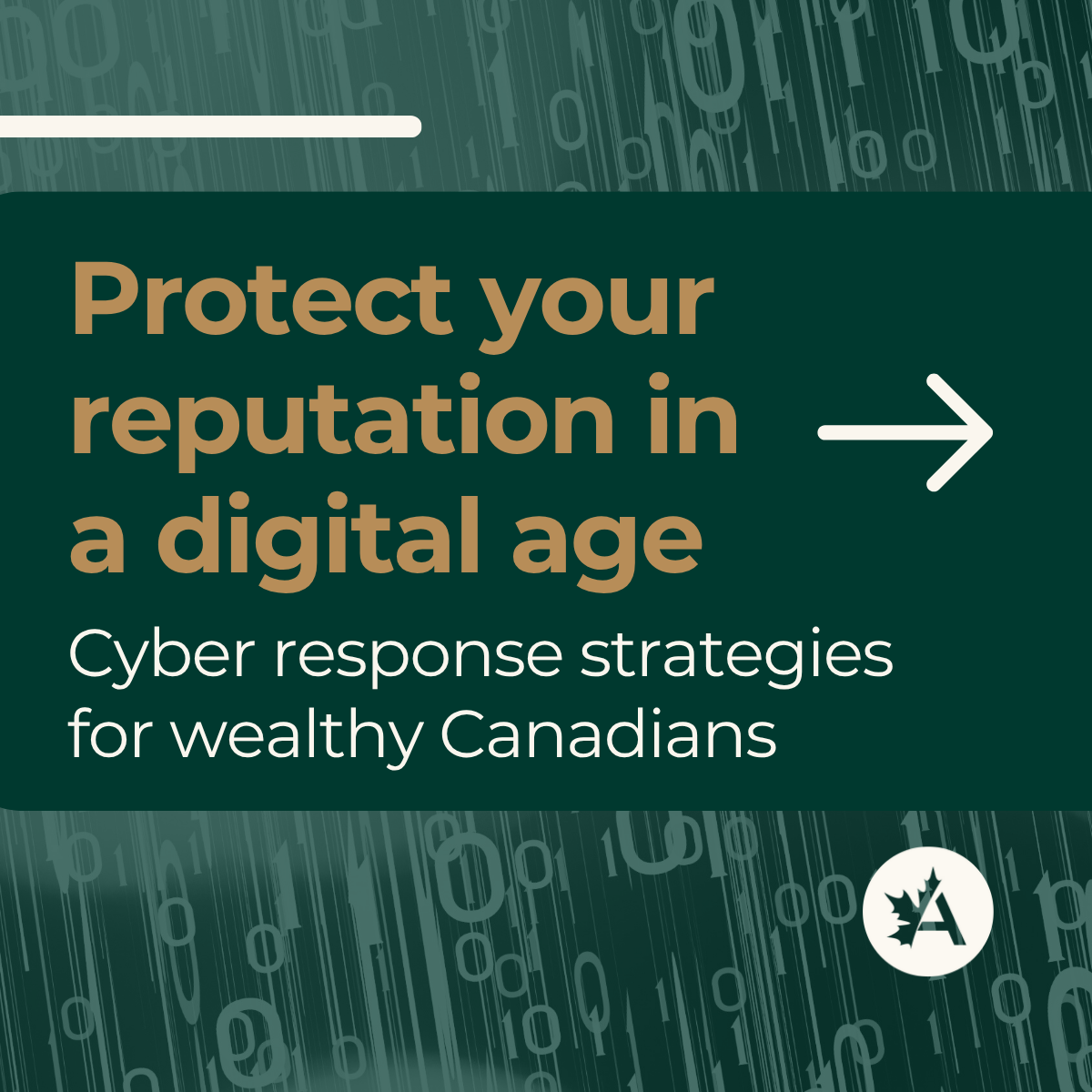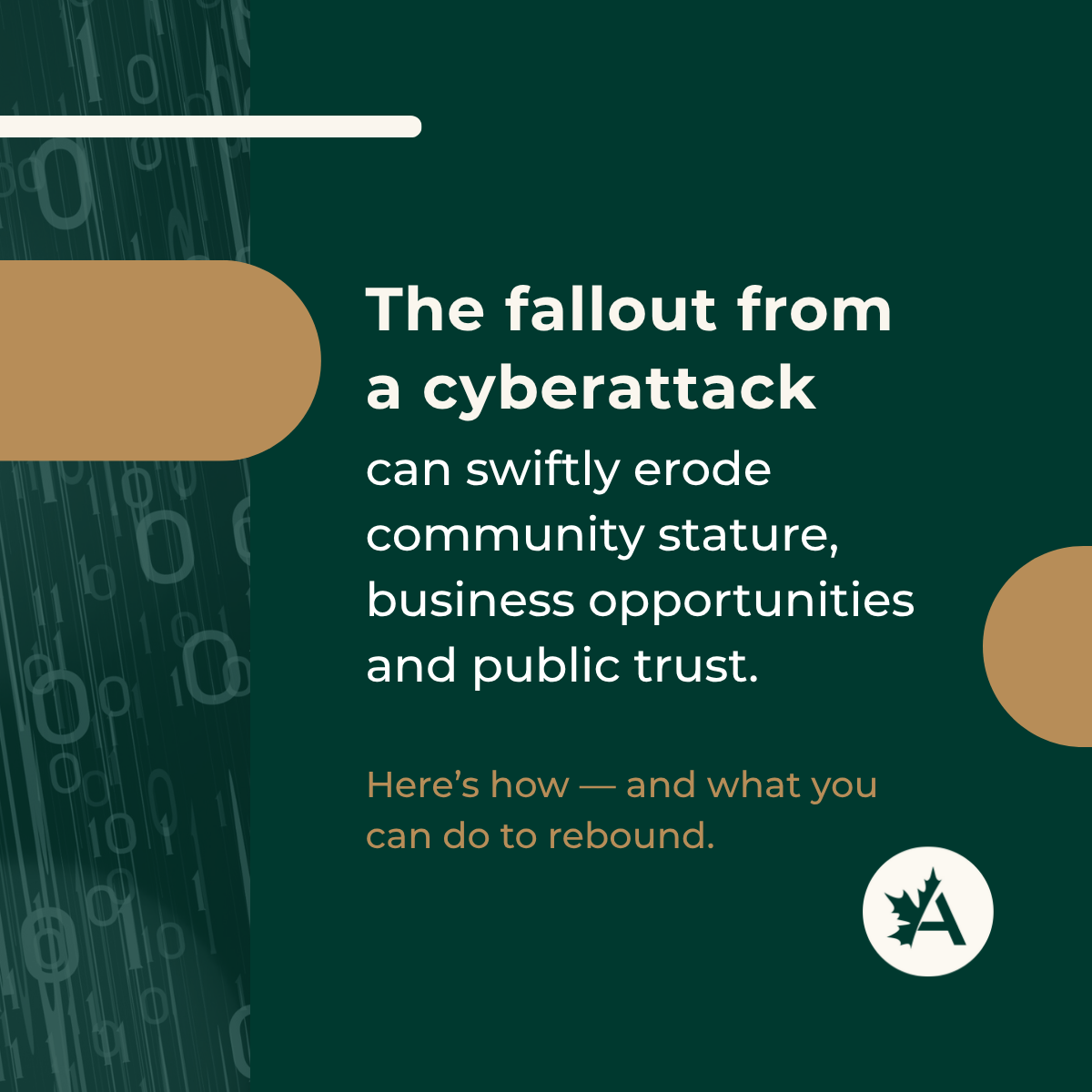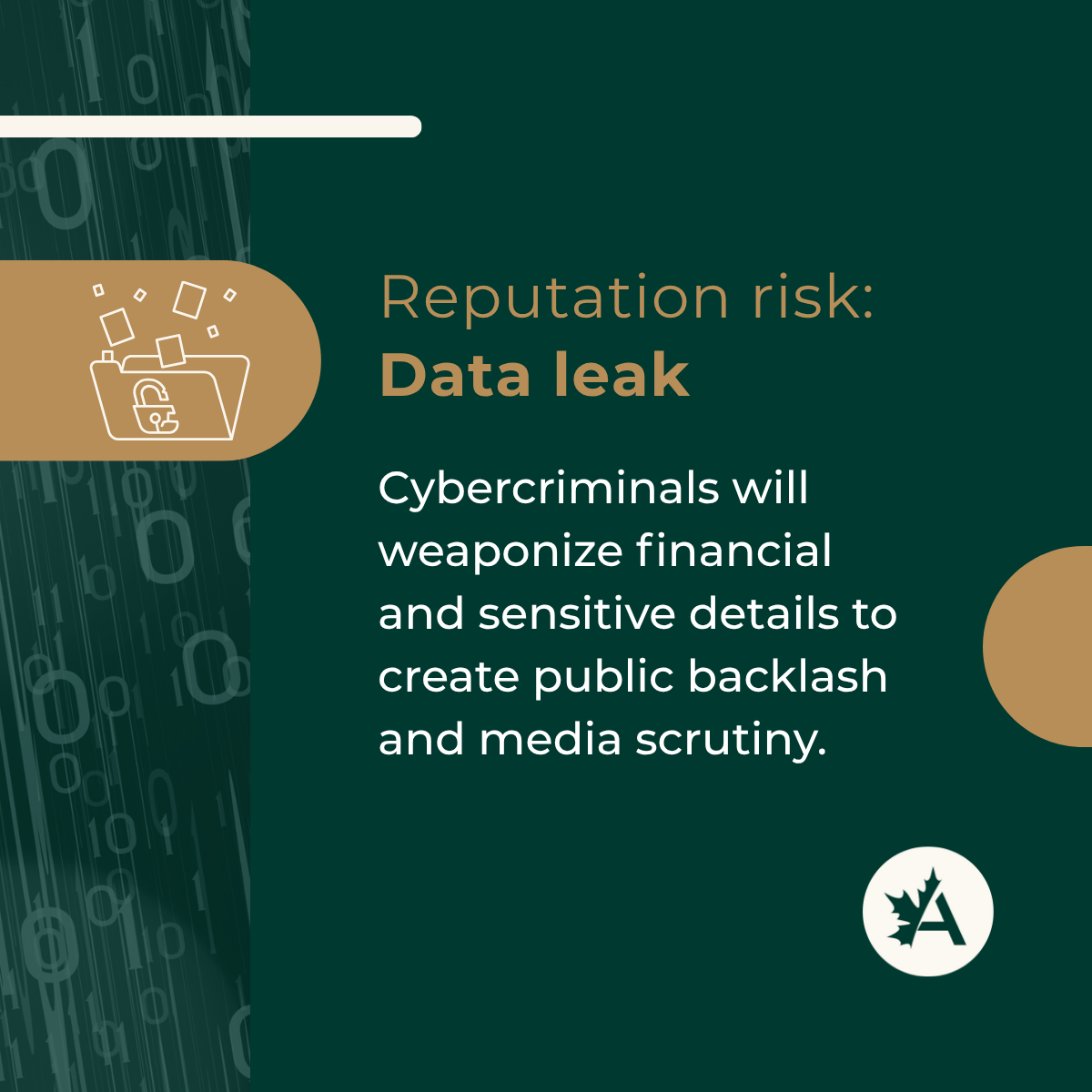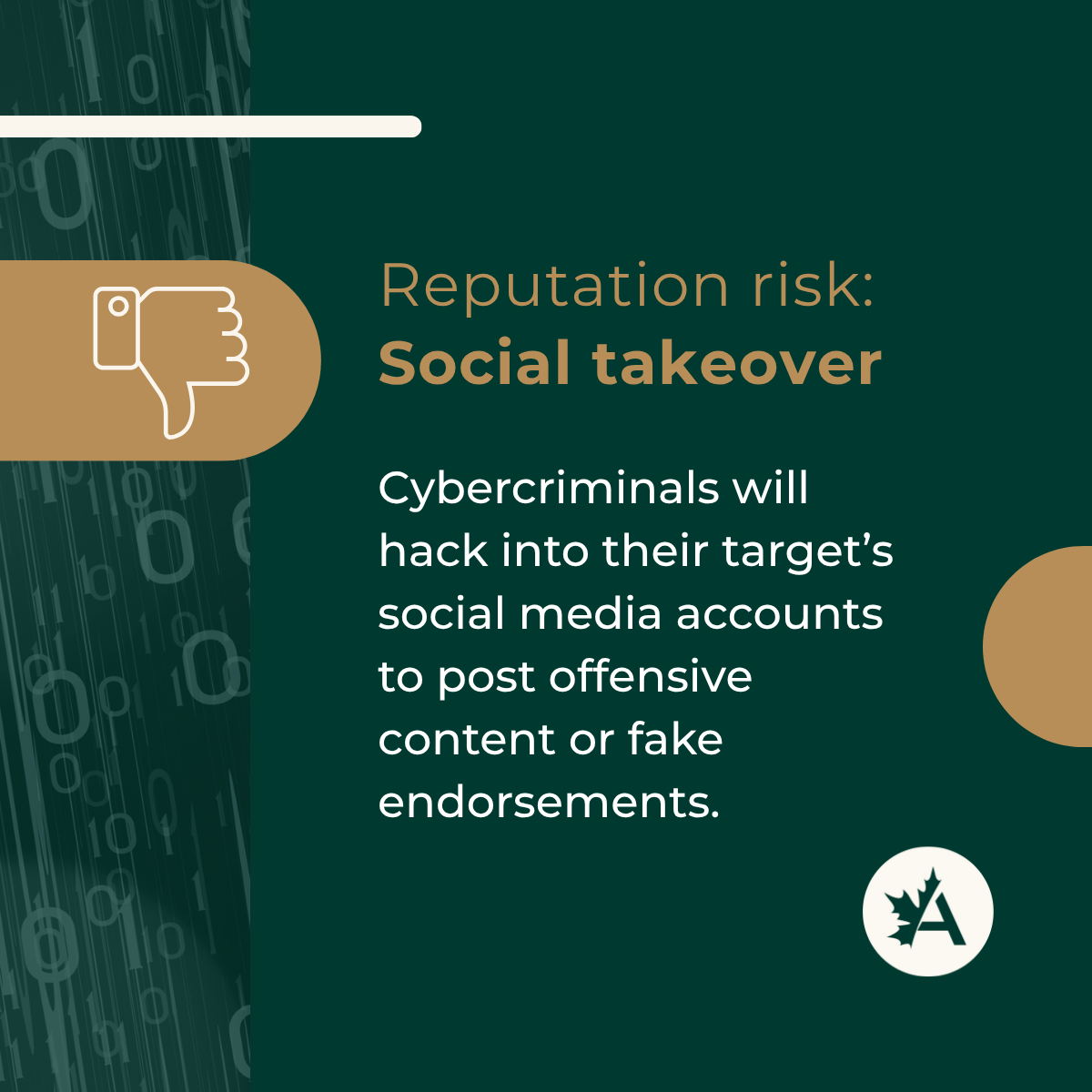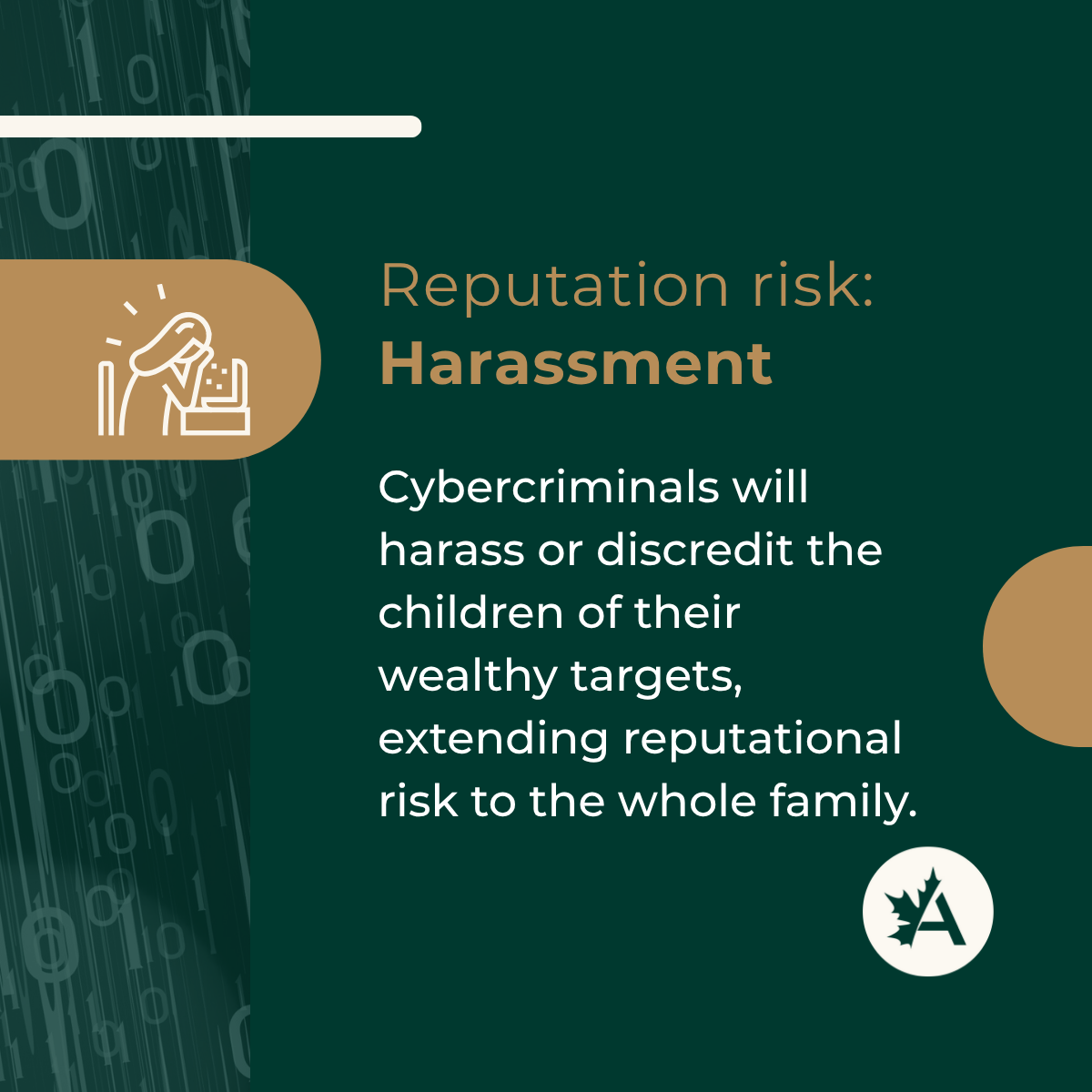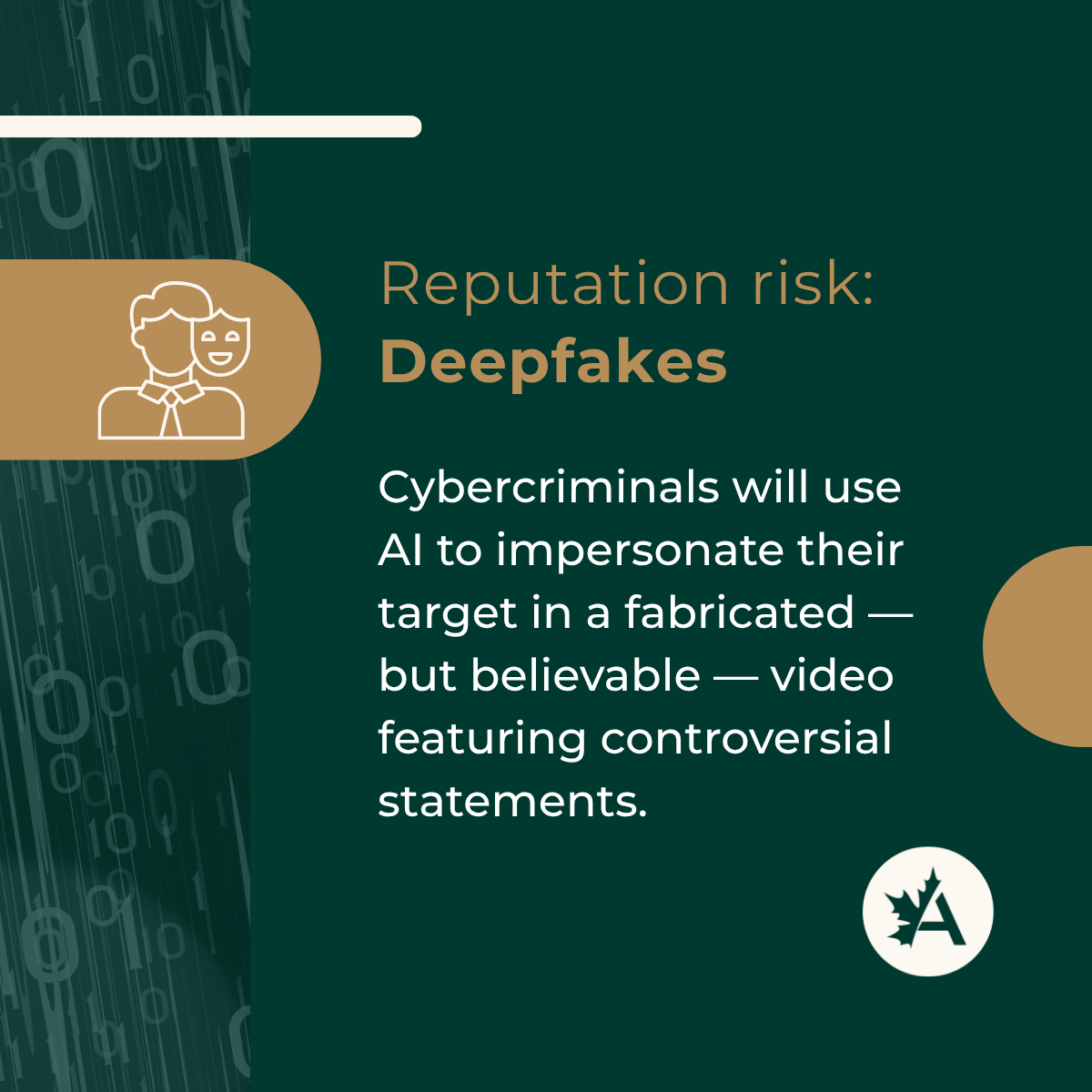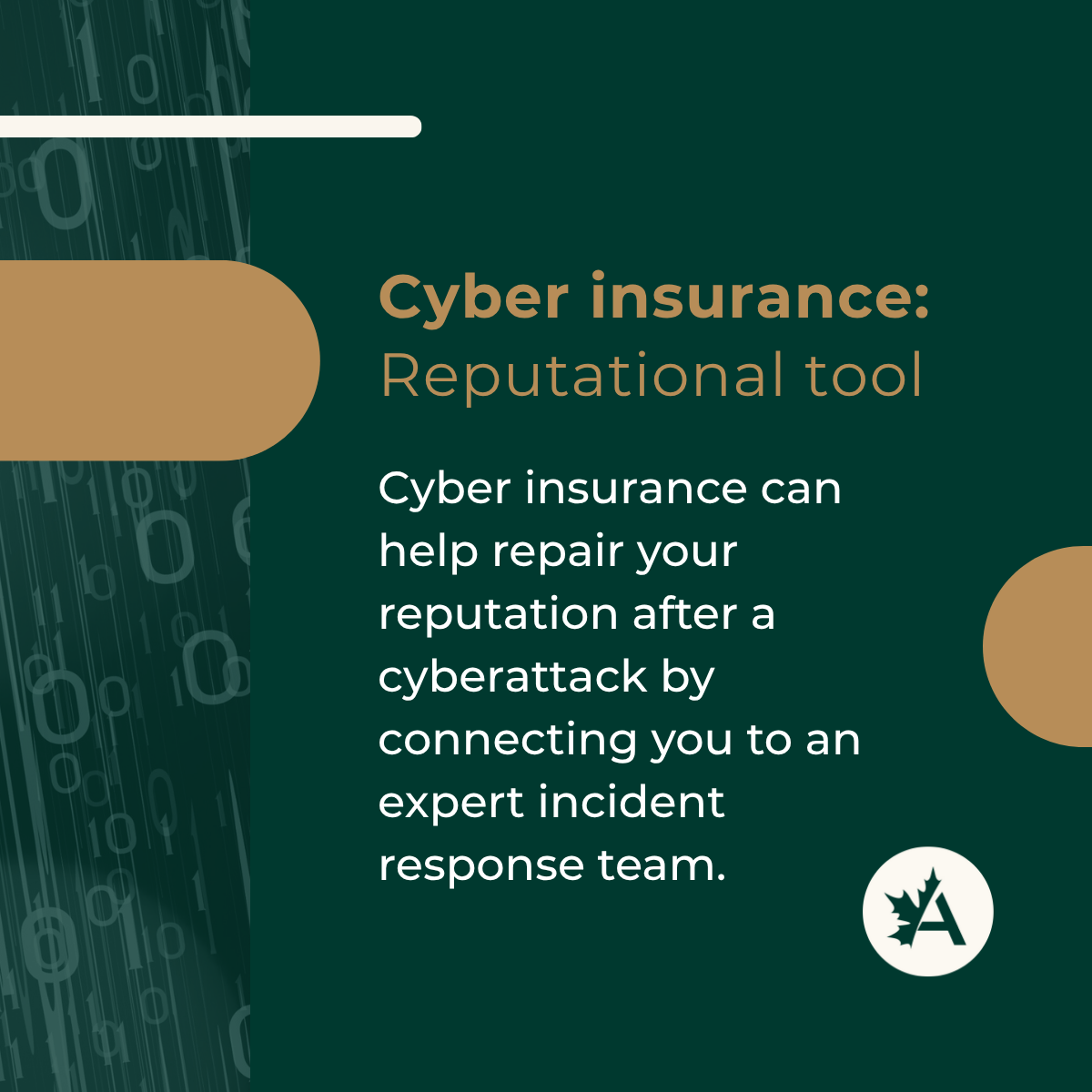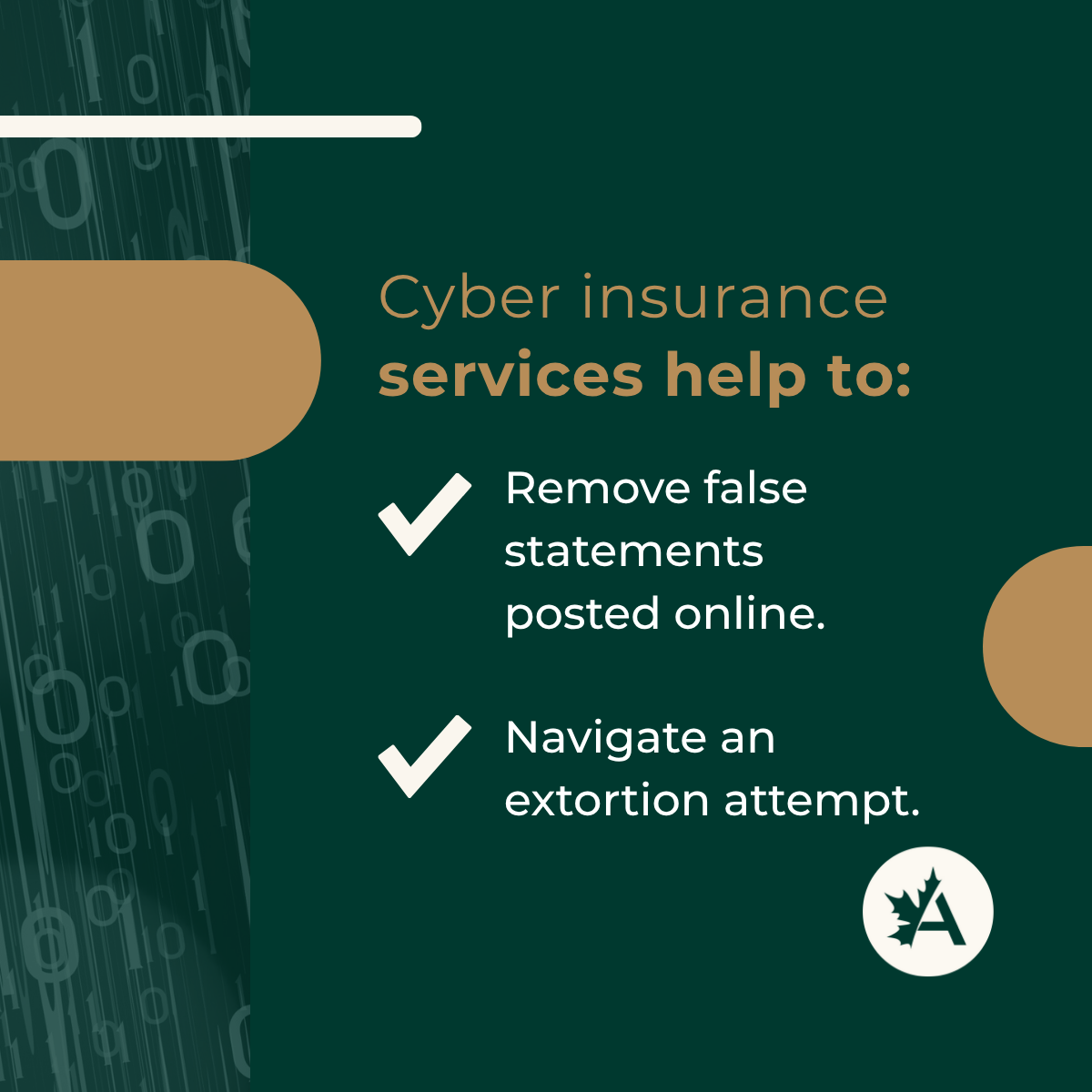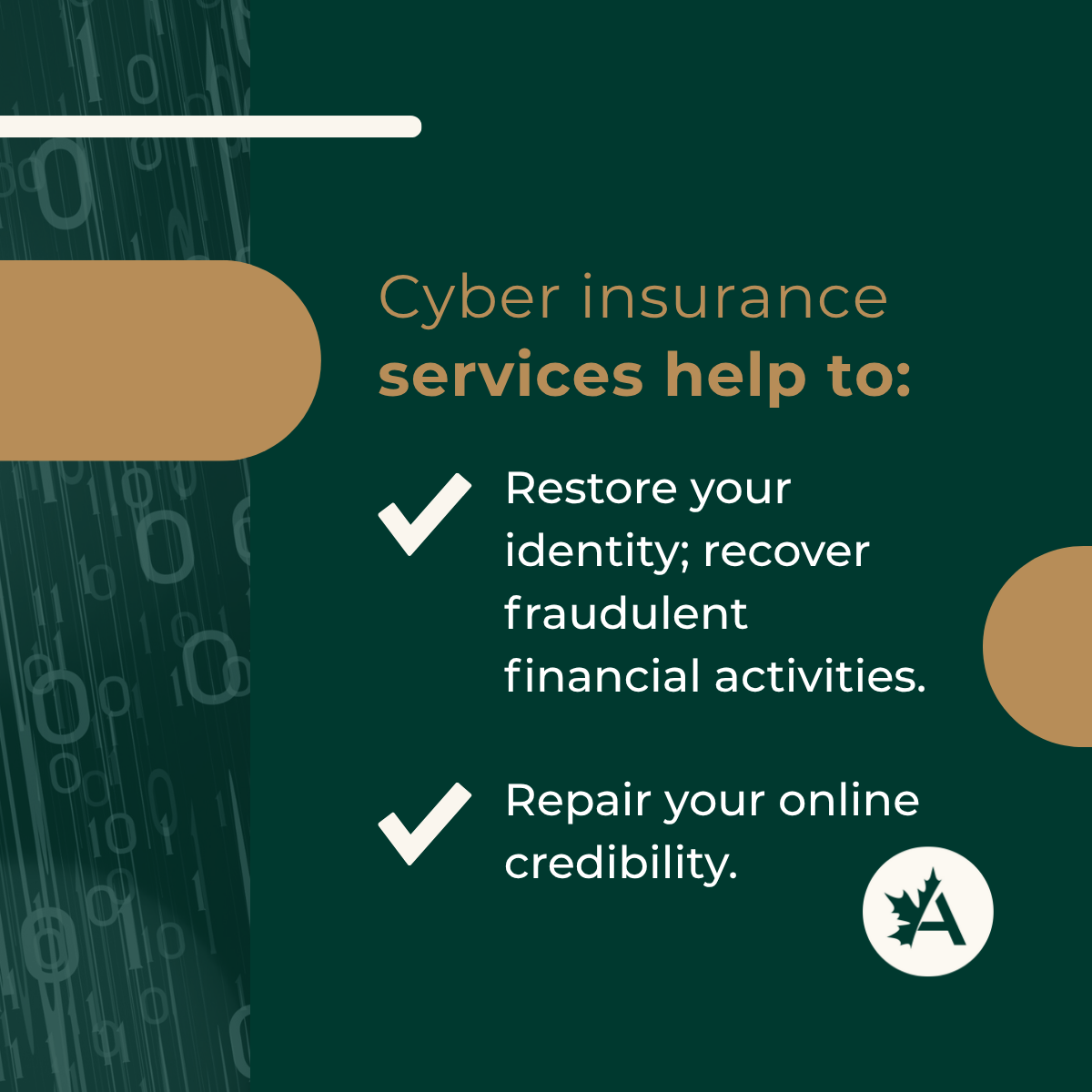We live in a world where just one fake social media post can swiftly erode community stature, business opportunities and public trust.
Given that cybercriminals are increasingly targeting highly successful Canadians, protecting your reputation is just as important as your assets.
Fortunately, with the right coverage in place, you can protect the legacy of your name and character.
Top cyber threats that can damage the reputation of wealthy Canadians
Successful Canadians tend to have a higher degree of public visibility, which increases their vulnerability.
Things like home addresses, security measures, personal routines, social media accounts and travel itineraries can unknowingly be leaked — endangering personal safety and giving cybercriminals easy entry points to launch their attacks.
Cybercriminals understand attacking the reputation of wealthy Canadians can be a very successful way to cause havoc.
This is why they are discrediting their targets as a means to a financial windfall.
Common threats against high-net-worth individuals include data leaks, social media account takeovers, targeted harassment and stalking, and AI-generated deepfakes.
Data leaks
Cybercriminals will infiltrate personal accounts and third-party databases (i.e., financial institutions, healthcare records, online service providers) to access financial and sensitive details that can be weaponized to create public backlash and media scrutiny.
Social media account takeovers
Hackers can post offensive content or fake endorsements to their target’s profile, which followers and media may assume are legitimate statements. LinkedIn account compromise is a particular concern among wealthy Canadians.
Targeted harassment and stalking
Cybercriminals have been known to launch coordinated campaigns to harass or discredit the children and dependents of their wealthy targets, extending reputational risk to the whole family.
AI-generated deepfakes
Cybercriminals will impersonate their target by using generative AI to fabricate a believable video featuring controversial statements. Once posted, this deepfake can quickly lead to a damaging scandal. Even if the video is proven to be fake, the lingering accusations can continue to live online.
In a hyperconnected digital world, these damning attacks can quickly spread like wildfire in the wind. This underscores the need for having a cyber incident response plan — and the foundation of your response plan should be a cyber insurance policy.
Cyber insurance is a reputation management tool
Who would you contact to help remove a deepfake video impersonation of you making controversial comments?
Or who would you contact if a cybercriminal was threatening to leak your child’s personal details to the dark web unless you pay up?
It can be daunting to think about.
But with cyber insurance, you will have an expert incident response team on standby.
Cyber insurance can also be thought of as a reputation management tool. In addition to offering a financial safety net, the policy covers services like crisis communications, public relations and tech support.
The services provided through a cyber insurance policy can help you restore your reputation following a cyberattack by:
- Removing false or damaging information posted online.
- Navigating a ransomware or extortion attempt with the support of crisis response experts.
- Restoring your identity and recovering fraudulent financial activities.
- Repairing your online credibility with the support of public relations and legal professionals.
“Cyber insurance can also be thought of as a reputation management tool. In addition to offering a financial safety net, the policy covers services like crisis communications, public relations and tech support.”
Stephanie Stockill, Client Executive, Signature by Acera Insurance
Cyber insurance for wealthy Canadian families
You already have safeguards in place to protect your valuables, your lifestyle and your legacy.
Now is the time to ensure your reputation is protected.
A Signature by Acera Insurance advisor will work with you to create a tailored cyber insurance policy that protects you and your entire household, including other family members and domestic staff.
Remember, cyber insurance is more than just protection from financial loss — it’s an investment in your reputation.
Cybersecurity best practices for wealthy Canadian families
Protecting your privacy and reputation in today’s digital world starts with these simple proactive steps:
Complete a digital risk assessment
Everything you share online — even in private settings — can be used by opportunistic cybercriminals.
So, take pause before you or members of your family publicly share any of the following details:
Travel plans, including live location updates from airports and resorts
Sharing your trip sets cybercriminals up to use this information to:
- Hack into your smart home networks
- Impersonate you in scams while you’re away
Children’s school information and daily routines
A photo of your child standing in front of their school or in a team jersey may seem harmless. But this makes it easier for cyberstalkers to identify and locate your children. Cybercriminals can also use such details to:
- Harass and bully your child online
- Impersonate your child online
- Extort your family
Homes and valuables
Sharing images of a recently completed home renovation, a newly acquired piece for your art collection or other signs of your wealth can attract cybercriminals — elevating your status to a prime target for their phishing or social engineering schemes.
The metadata in these images can also unintentionally unveil key details, like the location of your home.
Personal identifiers
A photo from your birthday celebration. The name of your pet. Including contact information on your LinkedIn profile. These are all details that cybercriminals can piece together to:
- Steal your identity
- Hack into your accounts
- Damage your reputation with impersonations or deepfakes
Financial details
Sharing a new real estate or business investment, affiliating with high-profile investors and publicly commenting on your portfolio success help cybercriminals manipulate your financial prowess.
Using these details, cybercriminals may pose as wealth managers or investors pitching a lucrative opportunity — only to plant malware, steal funds or access data to sell on the dark web.
Brush up on cyber hygiene
Cyber hygiene is all about following cybersecurity best practices to protect you and your loved ones. This includes:
- Always using multi-factor authentication.
- Creating strong passwords and never using the same password for multiple accounts.
- Updating your software and devices when available, as these updates often include security patches.
- Ensuring your home network is secure. Also regularly monitoring your home network to ensure there is no unfamiliar traffic or devices trying to access your network.
- Monitoring your smart home systems and watching for unusual traffic or any unknown device registrations.
Involve the whole family
Everyone in your household, from children to elderly parents, plays a role in maintaining cyber safety.
Ensure everyone is routinely educated on the most current cyber threats to enhance your cybersecurity practices. And don’t forget to listen to what your kids have to share — they are highly tech savvy.
Stephanie Stockill is a Client Executive with Signature by Acera Insurance, our specialty division dedicated to addressing the unique requirements of high-net-worth individuals and families. Stephanie brings over 16 years of experience in personal insurance, with a focus on high-net-worth individuals. She holds her CAIB and CAPI designations and is known for her client-first approach and deep market knowledge.
Information and services provided by Acera Insurance, Acera Benefits and any other tradename and/or subsidiary or affiliate of Acera Insurance Services Ltd. (“Acera”), should not be considered legal, tax, or financial advice. While we strive to provide accurate and up-to-date information, we recommend consulting a qualified financial planner, lawyer, accountant, tax advisor or other professional for advice specific to your situation. Tax, employment, pension, disability and investment laws and regulations vary by jurisdiction and are subject to change. Acera is not responsible for any decisions made based on the information provided.


